 Petzlover
Petzlover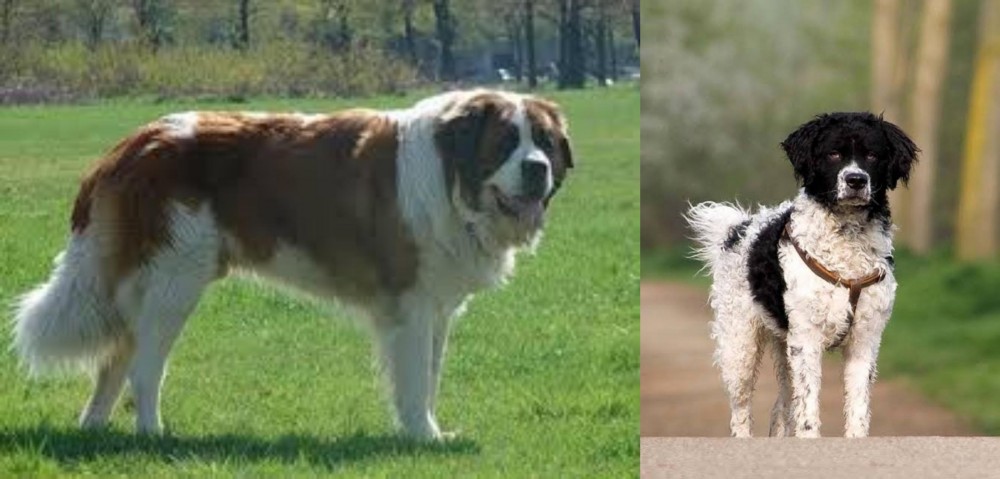 Moscow Watchdog is originated from Russia but Wetterhoun is originated from Netherlands. Moscow Watchdog may grow 10 cm / 4 inches higher than Wetterhoun. Moscow Watchdog may weigh 33 kg / 73 pounds more than Wetterhoun. Moscow Watchdog may live 3 years less than Wetterhoun. Both Moscow Watchdog and Wetterhoun has almost same litter size. Both Moscow Watchdog and Wetterhoun requires Moderate Maintenance.
Moscow Watchdog is originated from Russia but Wetterhoun is originated from Netherlands. Moscow Watchdog may grow 10 cm / 4 inches higher than Wetterhoun. Moscow Watchdog may weigh 33 kg / 73 pounds more than Wetterhoun. Moscow Watchdog may live 3 years less than Wetterhoun. Both Moscow Watchdog and Wetterhoun has almost same litter size. Both Moscow Watchdog and Wetterhoun requires Moderate Maintenance.
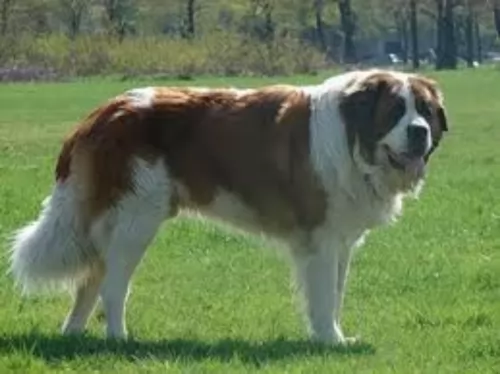 The Moscow Watchdog is a cross between the Caucasian Oytcharka, the St. Bernard and other Russian hound dogs. This large breed dog was developed in the Soviet Union for the purpose of being guard dogs. It had the awareness and assertiveness of the Oytcharka and the size, intelligence and attractiveness of the St. Bernard. The breed is common in Russia today but hardly seen anywhere else even though they were exported to the United States and Europe. The breed had the first U.S. born litter in 2015 and it is not AKC recognized.
The Moscow Watchdog is a cross between the Caucasian Oytcharka, the St. Bernard and other Russian hound dogs. This large breed dog was developed in the Soviet Union for the purpose of being guard dogs. It had the awareness and assertiveness of the Oytcharka and the size, intelligence and attractiveness of the St. Bernard. The breed is common in Russia today but hardly seen anywhere else even though they were exported to the United States and Europe. The breed had the first U.S. born litter in 2015 and it is not AKC recognized.
Following the second world war crime was on the rise in the Soviet Union and a new breed of dog was needed to counter this trend. The dog had to be adaptable to very cold temperatures, snowy weather and have a guard dog personality and ability. The breed was called on to guard such locations as railroads, government offices, warehouses, infrastructure and labor camps.
The project to develop this breed was led by General Medvedev beginning in 1946 at the Central School of Military Kynology – which was a department of the Soviet Ministry of Defense. It took many years to develop the Moscow Watchdog which then became a very successful breed.
It took until 1985 for the breed to be “officially” recognized in the Soviet Union and until 1992 to be recognized by the Federation of Dog Breeders in Russia and until 1997 for the standard to be approved by the Russian Kennel Club. They are still working with the FCI to gain international recognition for the breed. At the moment they are considered a part of the Molosser group and shown in the “Special Show” in Russia.
Committed breeders brought the Moscow Watchdog to Hungary in 1986 in order to make the breed more popular. In addition to this there were many breeders from previous Soviet States that wanted to preserve the breed as well. There were about 500 Moscow Watchdogs in Hungary around then. Currently there are about 27 Moscow Watchdogs in the United States. The breed is known to be a gentle giant and very much a family dog these days.
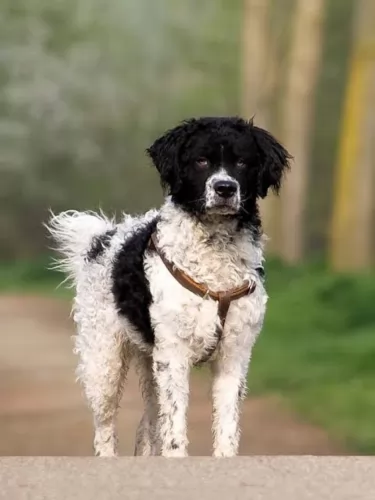 The Wetterhoun is a water dog developed in the 1500 or 1600s to hunt otters. The breed was developed by the Frisians in the Netherlands near the Northwest corner. In addition to catching otters in the lakes near by, they were also used as gundogs to hunt game. They are a fearless, tough and loyal working dog. They love the water and they are build for it with a waterproof coat and tight tail that is spiraled. They will swim happily in freezing cold weather as well.
The Wetterhoun is a water dog developed in the 1500 or 1600s to hunt otters. The breed was developed by the Frisians in the Netherlands near the Northwest corner. In addition to catching otters in the lakes near by, they were also used as gundogs to hunt game. They are a fearless, tough and loyal working dog. They love the water and they are build for it with a waterproof coat and tight tail that is spiraled. They will swim happily in freezing cold weather as well.
The Wetterhoun is rare and not seen outside of the Netherlands. Descendent of the Water Dog, that is now extinct, he is probably a relative of many spaniel types that also call the Water Dog their ancestor. Yet the Wetterhoun is not a spaniel or spaniel type.
The breed almost disappeared during World War II, like many others, they brought back and are now becoming more and more popular. The breed is only recognized by the Federation Cynologique Internationale and the United Kennel Club. AKC does not recognize them, but there are many hunting clubs and other registries that do. They are often promoted as one of the rare breeds.
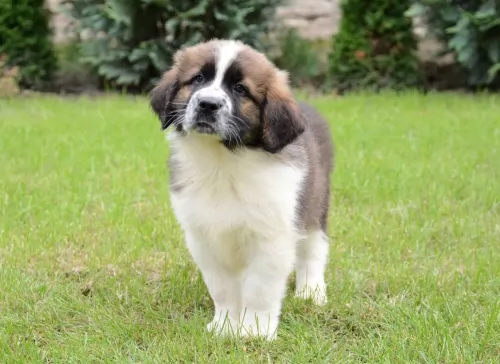 The Moscow Watchdog is related to the mountain dogs and is a very large breed. They are sturdy, muscular and powerful. They have big heads and a thick double coat that sheds profusely four times a year. They have a long tail, an arched chest and an air of confidence.
The Moscow Watchdog is related to the mountain dogs and is a very large breed. They are sturdy, muscular and powerful. They have big heads and a thick double coat that sheds profusely four times a year. They have a long tail, an arched chest and an air of confidence.
He is in the Mastiff family and is smart and trainable. He is not clumsy but has big bones. He is surprisingly agile and active for a dog his size. Unlike the St. Bernard he is not a couch potato. He is also differentiated from the St. Bernard because he does not drool.
These dogs are large but they’ve got a gentle temperament and are good with kids, being playful and energetic with them.
Even though he is a docile dog, you want him trained and socialized, and then he gets along well with other pets too. His sheer size makes it that it is best to supervise him when he’s around small children. He is also a protective dog breed, willing to bond closely to, and protect his human family.
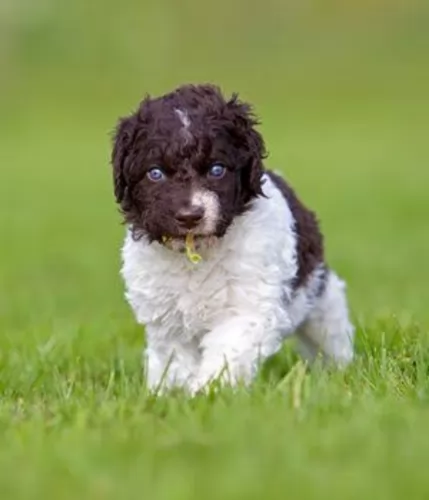 The Wetterhoun is a compact, medium sized breed weighing about 55 to 77 pounds. Great water dogs they are athletically built with low set ears hanging next to their heads, a waterproof coat, distinctive eyes with a very serious expression and a tightly curled tail held aloft over the back. Their coat is waterproof, somewhat oily, curly and thick. The fur is of a smoother texture on the ears, head, and legs. They can be solid black, solid brown, brown with white, or black with white.
The Wetterhoun is a compact, medium sized breed weighing about 55 to 77 pounds. Great water dogs they are athletically built with low set ears hanging next to their heads, a waterproof coat, distinctive eyes with a very serious expression and a tightly curled tail held aloft over the back. Their coat is waterproof, somewhat oily, curly and thick. The fur is of a smoother texture on the ears, head, and legs. They can be solid black, solid brown, brown with white, or black with white.
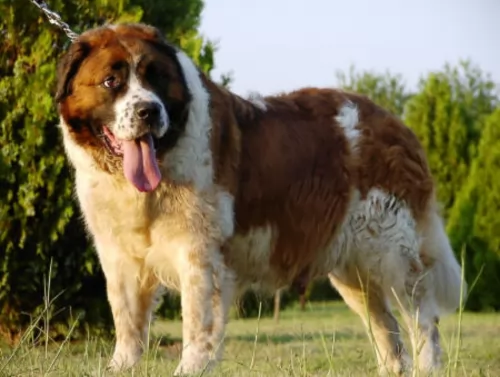 This is a large dog who likes to be involved and busy, even though he is so big. He isn’t suited to city life and being confined to a tiny garden as he needs space.
This is a large dog who likes to be involved and busy, even though he is so big. He isn’t suited to city life and being confined to a tiny garden as he needs space.
They’re independent dogs too and you can leave them alone during the day. He is social, so while you can leave them during the day while you’re at work, he’ll want your attention when you get back. They're such loving, loyal family pets that you owe it to him to make this gentle giant of a dog as happy as can be.
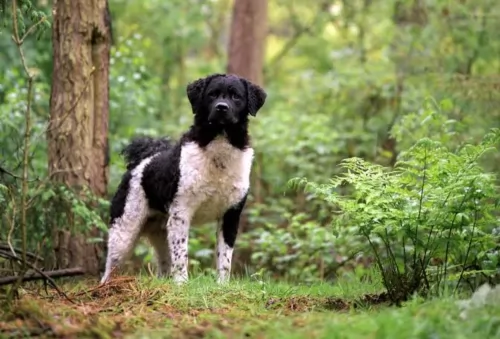 3.Adaptability – not a great apartment dog even though he is not that big. They need space. They need a job and they will finish their job at their own pace no matter what you say. It is impossible to train this trait out of them.
3.Adaptability – not a great apartment dog even though he is not that big. They need space. They need a job and they will finish their job at their own pace no matter what you say. It is impossible to train this trait out of them.
4.Learning ability Very high learning ability, very eager to learn and very smart. He is stubborn about finishing whatever job he is working on
 Moscow Watchdog is looked upon as a fairly healthy dog breed but there are some risks such as hip dysplasia as well as some other large breed problems.
Moscow Watchdog is looked upon as a fairly healthy dog breed but there are some risks such as hip dysplasia as well as some other large breed problems.
With big dogs like this, hip dysplasia is a threat. Its an hereditary condition where the parent dogs pass down the problematic genes. Hip dysplasia results in inflammation and pain for your pet, and where once he loved to play, he is reluctant to and battles to get up after lying down.
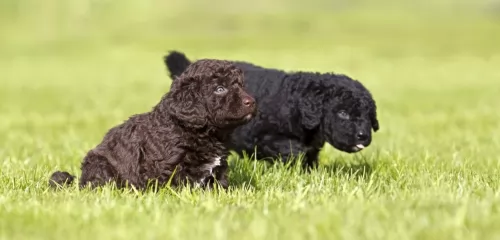 A hardy and healthy breed they do not have severe health issues. But like every his
A hardy and healthy breed they do not have severe health issues. But like every his
• Ear Infections – like any breed with hanging ears they can be prone to infection. This is particularly true because the dogs are in the water a lot. Be sure to clean and dry them after every water episode and inspect them on a regular basis even if the dog has not been in the water.
• Patellar Luxation – Knee cap issue with movement and inflammation. Can cause lameness and arthritis.
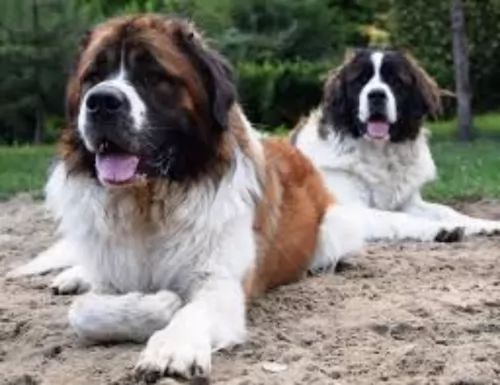 The Moscow Watchdog is a giant sized dog and will require a lot of regular exercise, and apart from a fairly brisk daily walk, will also need games and a run in the park.
The Moscow Watchdog is a giant sized dog and will require a lot of regular exercise, and apart from a fairly brisk daily walk, will also need games and a run in the park.
As a large dog requiring a regular dose of physical exercise as well as mental stimulation, he is better suited to life in the country or at least where there is a large garden.
The Moscow Watchdog has a medium length coat, and as a moderate shedder, you will need to simply brush his coat twice a week to remove loose hair. There is no professional grooming required for these dogs.
Homemade food is always a treat for a dog, but if you’re feeding your Moscow Watchdog commercially manufactured food because of the sheer convenience it provides, make sure the packaging says 'large- or giant dog breed' food. This way you know your pet is getting the right amount of minerals and vitamins for his size.
Always buy the best quality food to avoid giving your pet an overdose of colorants and preservatives. Try and give your pet some home-made food such as boiled chicken, some brown rice or pasta and some cooked vegetables such as sweet potatoes, carrots and spinach. These can be added to his kibble every now and again.
A simple diet like this agrees with your pet and he will be healthy and happy with his lot.
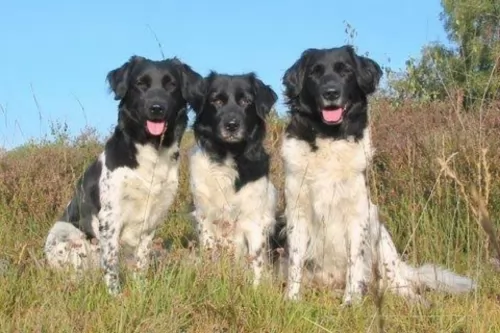 1Feeding the puppy -This is an active, hunting and swimming breed. They need good nutrition and high quality puppy food. A food formulated for active breeds or hunting dogs would be best. Feed your puppy in smaller amounts 3-4 times per day.
1Feeding the puppy -This is an active, hunting and swimming breed. They need good nutrition and high quality puppy food. A food formulated for active breeds or hunting dogs would be best. Feed your puppy in smaller amounts 3-4 times per day.
2.Feeding the adult - This is an active, hunting and swimming breed. They need good nutrition and high quality adult food. A food formulated for active breeds or hunting dogs would be best. Feed your adult twice per day.
4. Games and Exercises – This is an active working dog that needs a lot of exercise every day. A 30 minute walk is only the beginning. They need outdoor time to play and run. They need to swim if at all possible.